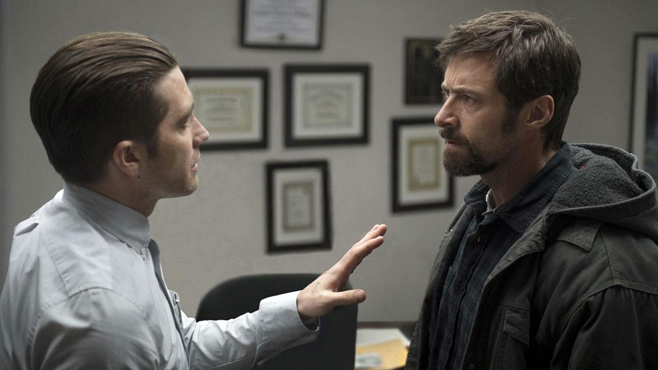The past few times that I’ve been to the movies, most of the films have related to superheroes, love stories or ridiculous and improbable comedy. This past weekend, I encountered a film that bypasses the cinematic norm by giving its audience something we usually try to escape when we enter the theater: reality.
In the newly released “Prisoners,” we delve deep into a heart-wrenching and terrifyingly realistic story that focuses on the kidnapping of two young girls and what their fathers do to get their children back home, regardless of issues of legality or morality.
Although the film deals with a topic to which most of us cannot relate, the characters are so authentic that it feels almost as if our own loved ones have been taken and that we ourselves are facing off against the potential intruders.
The two fathers, played by Hugh Jackman and Terrence Howard, react to their daughters’ disappearances in opposite ways. Jackman’s character, a deeply religious hunter and carpenter, lets out his rage against the lead suspect in his daughter’s kidnapping, played by Paul Dano, in ways that are unimaginably evil and demented, so much so that his actions almost made the audience feel for the alleged abductor. Howard’s character is much calmer and more tentative about the situation, even though he breaks down during a candlelit vigil for his daughter while his wife and elder daughter embrace him.
The mothers, played by Maria Bello and Viola Davis, are joined rather closely in their grief, very often appearing detached and erratic with sadness. At one point during the film, Bello’s character spirals into insanity when she believes her daughter floated through the house and out of her bedroom window.
Director Denis Villeneuve packs the 153-minute film with thrilling and horrifying moments, leaving us barely any time to adjust to the characters’ realizations. Jake Gyllenhaal, who plays the detective investigating the case, is incredibly jittery, often becoming frustrated and aggressive. As the hours of abduction turn to days, the audience questions what the final outcome of the story could possibly be, and whether this story will have the happy ending we’re so accustomed to.
In a way, these characters provide different reactions to tragedy, and the audience’s response was similarly varied. One man actually screamed during an intense moment between Gyllenhaal and a suspect, but neither my friends nor I realized that this scream wasn’t part of the film. The intensity of the film was infectious, and the impact on the audience made the entire experience that much more chilling.
While the film is incredibly haunting, it’s also impressively simple. The beginning and end both feature a simple title card, with the word “Prisoners” in white text against a black background. Yet the experience of the characters gives the identical cards different resonance.
If you are interested in seeing a strong film in acting, story and overall emotional output, I would strongly recommend hurrying to your local theater as soon as possible to have your own opportunity to be moved by “Prisoners” in ways you may not have imagined. There’s already Oscar buzz surrounding the film, which has been out for less than a week, so hop onboard and get ready for some intensity.








